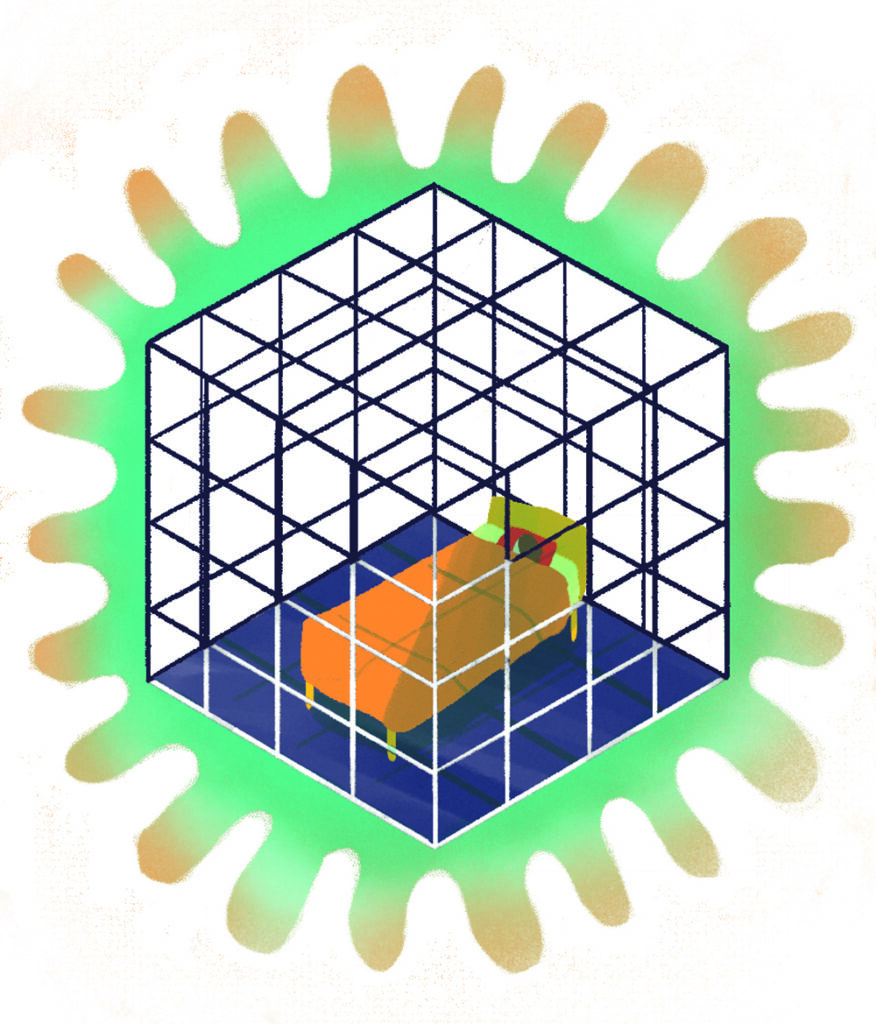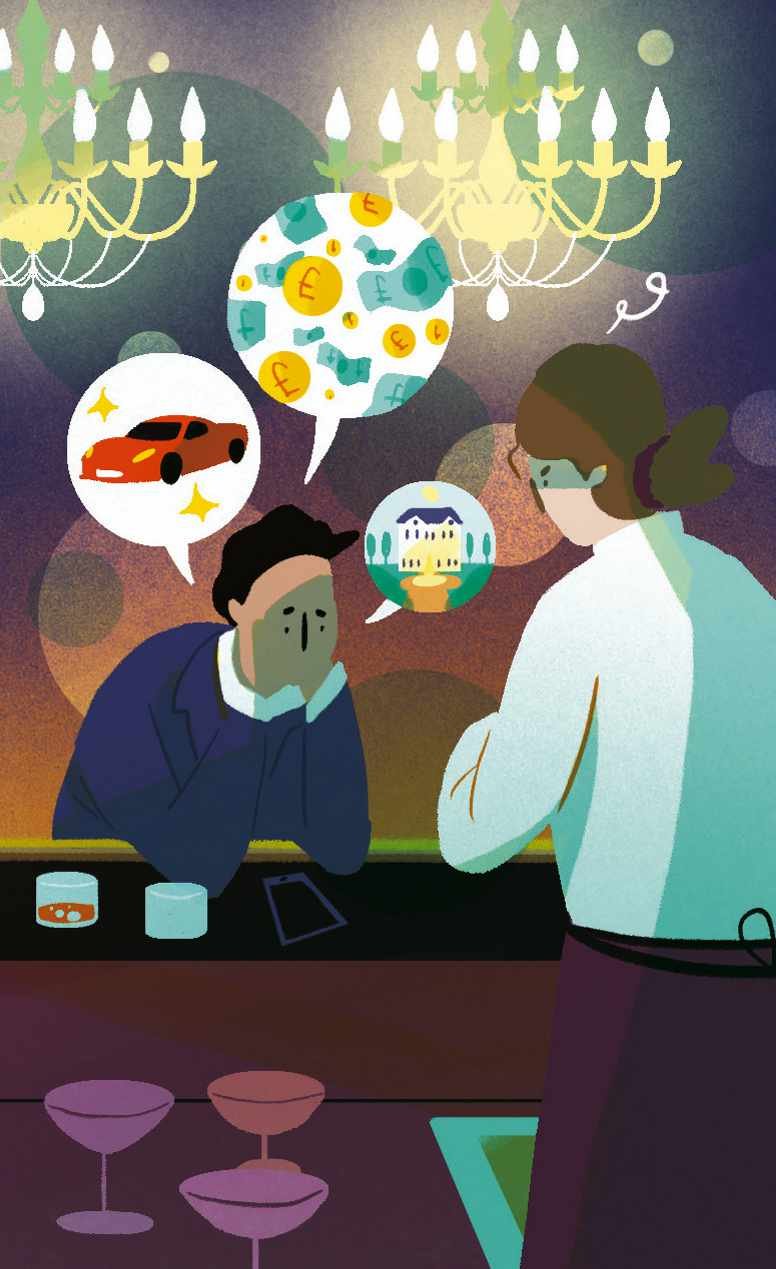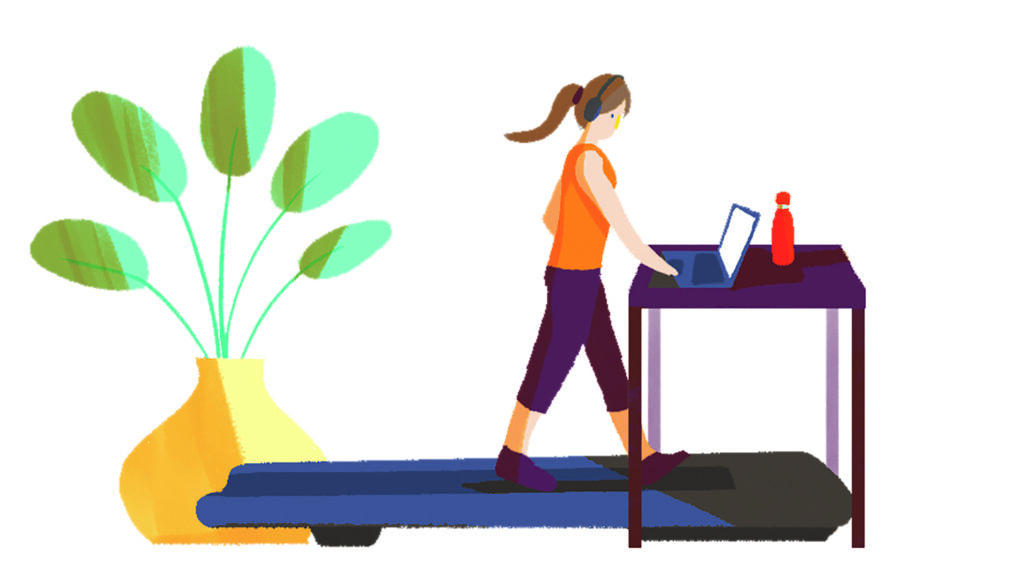YOUR PRODUCTIVE BRAIN
Increasing your productivity is easy. It’s just a matter of making a few simple changes to your routine, or behaviour, or thinking, and your productivity will soar. At least, that’s what countless online articles claim. The actual science tells a different story. Even a modest amount of research reveals that some of the most commonly touted claims about how to boost productivity fall apart in the face of the evidence. So, here are some of the most common myths around boosting productivity, along with a number of approaches that have a more robust scientific basis.

“WAKING UP AT 4AM WILL MAKE YOU MORE PRODUCTIVE!” (FALSE)
It’s regularly claimed that you’ll be more productive if you get up early. Very early. According to a 2016 Wall Street Journal article, the most successful (and therefore productive) people typically rise at 4am.
There’s some logic to it. For instance, if you’re awake while everyone else is still asleep, they won’t distract you, so you’ll be more productive.
However, there are many reasons why waking up at 4am could be actively unproductive. An important one stems from our own biology; sleep is crucial for our ability to function, and depriving yourself of it does more harm than good.
A typically healthy amount of sleep for adults is around seven to nine hours. Less than that quickly has negative health effects, compromising focus, mood, memory, stress tolerance, and more. Forcing yourself to wake at 4am means you’re losing sleep, and will be less productive as a result.
Some people seem able to get away with it, being natural ‘early risers’. But the veneration of such people may be misplaced. A study by the National Sleep Foundation stated that “Individuals who habitually sleep outside the normal range may be exhibiting signs or symptoms of serious health problems or, if done volitionally, may be compromising their health and wellbeing”. Another study claims sleeping far fewer hours than average is more likely to be self-imposed than anything natural, and will incur a significant sleep debt, harming health.
Overall, while there may be some productive advantages to waking up in the early hours, these can easily be cancelled out by the consequences of lost sleep.

“JUST GET INTO YOUR ‘ZONE’” (TRUE)
With everything discussed so far, it’s important to consider one important caveat; everyone is different, and what works for one person may not work for another. Individual differences play a considerable role in how we end up being productive. But if you can eventually figure out what factors work best for you, it would be wise to exploit this awareness, because it increases your chance of reaching a state of cognitive ‘flow’, known to most people as being ‘in the zone’.
Flow is arguably the most productive state of mind it’s possible to be in. It’s when you’re the most focused on a task, whatever it is, and thus demonstrating the maximum level of skill in performing it that you’re capable of.
Despite how much time and effort people dedicate to achieving a state of flow, it’s actually tricky to do. This is likely due to the fact that our brains are actually doing dozens of things at once, and often, like with our attention systems, many of those things will get in the way of other things.
Sometimes, though, all of the scattered bits of our consciousness join forces and focus on one specific task, and so we enter a flow state. The issue is, what effectively occupies the myriad parts of your brain will vary from person to person. So the particular setup that allows you to be most productive will likely be unique to you.
The point is, reading articles and advice columns on how to be more productive is all well and good, but nobody is going to know the best way to boost your own productivity better than you.
“BACKGROUND MUSIC IS BENEFICIAL” (TRUE)
There’s a lot of debate at present regarding what’s more productive. Is it working from home, or working in the office? And both sides regularly argue that the other offers more distractions from work.
However, one thing that rarely gets mentioned is the fact that certain distractions can be helpful for productivity. Some people prefer to work in relative silence, but a great many find they’re more productive with some sort of background noise. Generally, this takes the form of background music. This helps, rather than distracts, because of how our attention works. Basically, we have two attention systems: the conscious one, which we direct and control, and the unconscious one, which alerts us to anything significant that our senses pick up and diverts our focus towards it.

When we’re trying to focus on a task, our conscious attention is occupied, but can still be diverted by the unconscious system. And if we’re in complete silence, any creaks or sighs or murmurs or other random sounds stand out more, meaning our unconscious attention is more likely to be distracted, which hinders our productivity. But if we play music in the background, it masks obtrusive noises and occupies our unconscious attention, like giving a bored child a toy to play with while you’re trying to work. Obviously, the type of music will make a difference. Things with lyrics aren’t as good because our brains are more stimulated by linguistic information, and music that has a negative impact on mood can sap motivation. Weirdly, one type of music that seems to readily boost productivity and focus is video game soundtracks. It makes logical sense, really; it’s music designed to be stimulating while you’re focusing on something else.
In any case, there are many situations where background noise and music can actually enhance productivity and not disrupt it.
“WAKING UP WHEN YOU’VE HAD ENOUGH SLEEP IS BETTER THAN WAKING AT 4AM” (TRUE)
We previously saw that forcing yourself to wake before dawn in order to be more productive can become self-defeating. However, this need not be the case. In truth, any wake-up time can be productive, if you’ve had enough sleep. So if you wake at 4am after going to bed at 8pm, you’ve almost certainly had enough slumbering time. There are many health benefits of sufficient sleep. It boosts memory retention, aids focus, improves general health, elevates mood and reduces irritability, all of which increase your capacity to be productive.

Sleep can aid productivity in other ways. Sleep is when our brains process all the memories and thoughts we’ve accrued during the day, and integrates them into our existing neural networks. This is why ‘sleeping on it’ is a legitimate approach to problem-solving. If we can’t get our head around an issue, sleeping on it means more of our brain is connected to our experience of it, opening up new approaches, while staying up all night trying to figure it out is less effective. So yes, sleep is important for productivity – more so than waking up at certain times.
“WE ALL HAVE THE SAME 24 HOURS!” (FALSE)
The most successful people experience 24-hour days just like anyone else. Much ‘advice’ on increasing productivity includes this observation. The implication is that you, the less successful person, could do the same as them if only you used your time better. This is, presumably, meant to motivate you to be more productive.

Many have pushed back against this claim. Yes, we all experience 24 hours in a day. But the ability to use those hours productively differs tremendously from person to person.
Context is everything. Someone who is working nights to pay for their studies during the day will not have the same ability to use their time ‘productively’ as, say, someone who was born a millionaire thanks to their father’s lucrative diamond mine. Hypothetically.
Similarly, there’s the impact of societal gender roles and other unhelpful factors. Ultimately, it’s far easier to use time productively when you have the money and resources, or faithful individuals taking care of the ‘unproductive’ demands of everyday life. And the vast majority of people lack these things.
Also, the idea that you should use 24 whole hours productively is objectively nonsensical. Psychology has repeatedly emphasised the importance to wellbeing (and thus maintaining productivity) of a healthy work-life balance. Dedicating every possible hour to ‘being productive’ actively goes against this.
The ‘we all have the same 24 hours’ claim actively downplays the fact that few people have the option to use that time 100 per cent productively.

“KEEPING BUSY MEANS YOU’RE BEING MORE PRODUCTIVE” (FALSE)
When a boss appears in the workplace, you need to ‘look busy’, because if you aren’t visibly in the middle of several tasks, you aren’t being productive.
The idea that constantly being busy is the only way to be truly productive is the default assumption for many people. It echoes the ‘we all have the same 24 hours’ claim from earlier, with the implication that any time not spent productively is time wasted. Those who take on many tasks and roles at once are often looked up to and feted as the productive ideal. But the science tells a very different story.
In truth, it has long been known that multitasking or ‘task switching’ actually erodes your productivity. Impressive as it is, the human brain has limited resources when it comes to attention and working memory – our abilities to focus on and think about things. These are both essential qualities for performing tasks successfully and productively, and if you overwhelm your attention and working memory with too many demands at once, then you will compromise your ability to do even the most straightforward tasks effectively.
This can then have knock-on effects on the productivity of other people too. Everybody will have experienced an increased workload because a colleague didn’t do their job right, meaning others have to fix their mess (and if you haven’t experienced this, then I’ve got bad news for you…).
But even if you are somehow able to handle an excessive workload successfully and effectively, this becomes detrimental, as ever-increasing cases of burnout in the workplace clearly reveal.
Thanks to how we and our brains work, productivity is often more about quality rather than quantity. Anyone insisting on trying to do as much as possible at once is just shooting themselves in the foot.
“GO FOR WALKS AND DECORATE YOUR WORKPLACE WITH PLANTS” (TRUE)
It’s rather common for people to liven up their workplace by incorporating houseplants into it. Or to covet the desk or office with the window that looks out onto the nearby park or wooded area. Some organisations frown on such things, opting instead for greater uniformity, but by and large, plants (and green views) in the workplace are sought after and appreciated by employees.
Why, though? Why would we, as a society, put so much time and effort into constructing buildings that keep nature out, only to constantly keep bringing bits of it inside them?

It’s not just for aesthetic reasons; it turns out that plants, foliage, and other types of greenery are actually good for productivity. This has been borne out by many studies which report increases in productivity when plants are introduced into the workplace. This happens, at least in part, thanks to the process of attention restoration, which is sometimes called ‘fascination’. The problem is, in most modern human environments, there are things that ‘actively’ attract our attention. Screens, billboards, writing, numerous colours and shapes, an everchanging variety of people, and more. Our brains like all these things, sure, but they invariably have to work hard to pay attention to them all, to decipher the sensory information they’re providing, and so on. But, as we saw earlier, our brains only have finite resources to do all this, so eventually they’ll just become depleted. However, this doesn’t seem to happen when we look at plants and similar stimuli. When we look at natural greenery, it seems our brains are occupied without being taxed. It’s the cognitive equivalent of putting your feet up with a good book; it’s doing something, but something restorative, rather than demanding.
This is why greenery is helpful for productivity. It replenishes your brain’s resources. So if you feel that you need to go for a walk to ‘clear your head’, you’re probably being more literal than you realise.

“YOU SHOULD BE HAPPY IN YOUR WORK” (FALSE)
According to many people, productivity is linked to happiness. As in, the happier you are, the more productive you’ll be.
Again, there’s logic to this. We’re often instinctively motivated to do things we find rewarding and make us happy, and avoid those we find unpleasant. Also, scientific studies reveal that happy workers are around 12 per cent more productive. So, if you’ve got a workforce of 100 employees, and they’re all happy, you’ll get the productivity of 112 employees, at no extra cost! It’s therefore unsurprising that so many organisations are fixated on employee happiness.
However, the simple yet persistent idea that ‘happiness = productivity’ overlooks considerable evidence to the contrary. For instance, other studies reveal that persistently happy employees can have negative effects on productivity in the workplace. They go to pieces quicker during difficult periods, are more easily exhausted (constant happiness is draining), and can even be more selfish.
Also, there are productive benefits of more negative emotions. Fear, anger, stress and envy have been shown to make people more productive in various situations.
As well as this, compelling people to be happy, whether via advice on how to be productive or employers insisting on ‘service with a smile’, often backfires. Studies reveal that if people believe they must be happy, it’s harder for them to achieve that. It’s like your hobby becoming your job; you stop enjoying it.
This feeds into the whole ‘Toxic Positivity’ issue of insisting that people must be happy at all times, and it’s entirely their responsibility to be so (because we can all choose our emotional state, apparently). This can quickly lead to the exact opposite outcome.
Even if being happy does make you more productive, efforts to force this outcome can easily backfire.
“DIET AND EXERCISE IMPROVE PRODUCTIVITY, AS LONG AS YOU IGNORE THE FADS” (TRUE)
Of the countless articles about how to be productive by following the advice of ‘highly successful people’, many focus on the individual’s diet and exercise regimen.
While their exercise routines are typically unobtainable purely due to practical concerns (most people lack a home gym, dedicated personal trainer, and four spare hours a day to use them), their diets can often be classed as ludicrous. You’ve probably read an article about some go-getter pulling in seven figures who seemingly breakfasts daily on a bowl of unfamiliar berries and leaves deemed to be ‘superfoods’, washed down with several glasses of ionised water, or the secretions of a beluga whale, or something equally bizarre.

If their claims come across as sanctimonious and superior, that’s because they are. It’s a way of displaying status and achievement to the unwashed masses. But if we ignore the ridiculous aspects, it’s fair to say that diet and exercise can be a big help with productivity.
Regular exercise has been shown, countless times, to have many benefits for your body and brain. Your brain is ultimately another organ after all, and the better shape your body is in, the more resources it can dedicate to the brain, improving functionality and productivity.
Diet can have a direct impact on our brains too. While the indirect health consequences of ‘junk’ foods are worth keeping in mind, recent studies show that such foods can have rapid negative effects on the brain’s workings, affecting our ability to focus and stay motivated on the tasks at hand.
So while you needn’t fill your fridge with the latest superfoods, improving your diet and exercise can boost productivity.

“HARD WORK ALWAYS PAYS OFF” (FALSE)
If you want to be productive, to achieve something, you just need to work hard, and you’ll get it. Because hard work always pays off.
That’s the mantra adopted by many. Unfortunately, reality is rarely as formulaic. As much as we might want to believe otherwise, when countless people are working equally hard for the same goals the most important factor is actually going to be… plain old luck. Unfortunately, you can’t tell people to ‘be lucky’ in the same way you can cajole them to work hard.
In fact, telling people that hard work inevitably leads to productivity and the outcomes they want is unhelpful. Our brains are sensitive to the balance between effort and reward. Our subconscious systems are constantly assessing how much work a task will involve and the likely outcome from putting that effort in, and asking ‘is it worth it?’ And when the effort we put in is not rewarded as expected, it causes stress and negative emotions. This is believed to be a key factor in workplace stress, because modern jobs often mean the person putting the effort in to something is far removed from the eventual outcome.
Given all this, why do people still believe that hard work always pays off? Possibly because of the ‘just-world hypothesis’, the cognitive bias where we assume that the world is a fair place, that good work is rewarded, and bad deeds are punished. It would also explain why successful people insist they’re solely responsible for their success, which is a common aspect of advice about productivity.